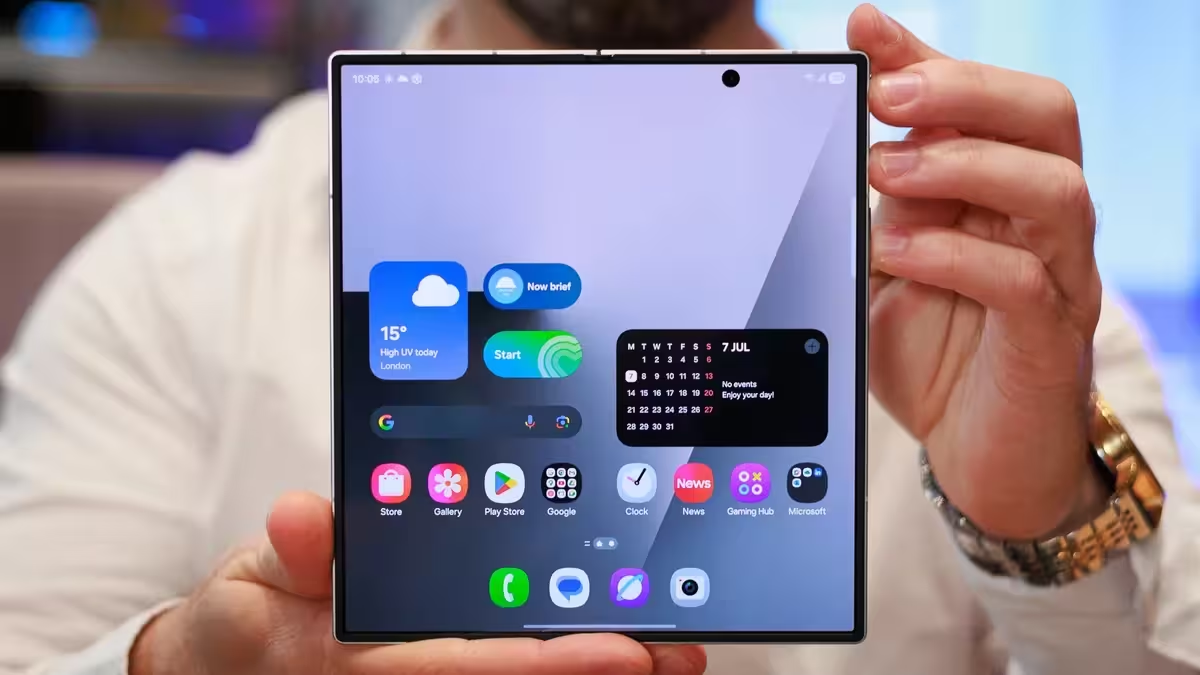3 Minutes
Why Apple’s entry will mainstream foldable phones
Samsung has been the visible leader in flexible-screen smartphones for years, with its Galaxy Z Fold and Galaxy Z Flip lineups — and recent models like the ultra-thin Galaxy Z Fold 7 have reignited consumer interest. Yet foldables still sit on the fringe of the smartphone market. If Apple launches a foldable iPhone, that single move could push foldable phones from niche to mainstream almost overnight.
How Apple amplifies market attention
Apple doesn’t just ship hardware; it generates headlines, shapes consumer expectations, and drives developer interest. That kind of spotlight benefits the entire category. When Apple talks about foldable design, reviews, social buzz, and carrier promotions will follow — and that attention will naturally spill over to Samsung’s established Galaxy Z Fold and Z Flip ecosystems.
What this means for Samsung
Validation and credibility
Apple’s involvement would send a powerful signal: foldables are not a temporary trend, but a long-term direction for smartphone innovation. Samsung has championed that story for years; Apple joining the race would validate Samsung’s investment in flexible OLED displays, hinge engineering, and durability improvements.
Competitive pressure that drives innovation
Competition between Apple and Samsung often accelerates progress. A foldable iPhone would force Samsung to push hardware refinement, software features, battery life, and manufacturing efficiency even further—benefiting consumers with better performance, richer multitasking capabilities, and more value across price points.

Product features and comparisons
Samsung’s foldables are mature products with years of hinge tech, flexible OLED panels, and multitasking software. An Apple foldable would likely emphasize ecosystem continuity, display quality, camera optimization, and iOS-specific foldable interfaces. The result: direct comparisons on durability, app experience, camera performance, and accessory ecosystems that help buyers choose based on real-world use.
Advantages and use cases
Advantages
- Market expansion: Apple’s entry would broaden consumer awareness and normalize foldable phones.
- More choice: Increased competition typically lowers barriers to adoption and speeds innovation.
- Developer attention: More apps optimized for large, foldable displays improves user experiences.
Use cases
Foldables excel at multitasking, immersive media consumption, productivity on-the-go, and gaming. Professionals who need split-screen workflows, creatives using large canvases, and power users who want tablet-sized screens in a pocketable device all benefit.
Market relevance and the road ahead
Apple’s participation would likely expand carrier promotions, enterprise interest, and accessory markets. Rather than undermining Samsung, Apple could amplify the market Samsung helped create — turning foldables from a tech curiosity into a mainstream smartphone category that both companies continue to evolve.
In short, Apple joining the foldable race won’t just stir competition — it will confirm that foldables are a durable chapter in smartphone innovation, validating Samsung’s early leadership and accelerating better products for consumers worldwide.
Source: sammobile


Leave a Comment